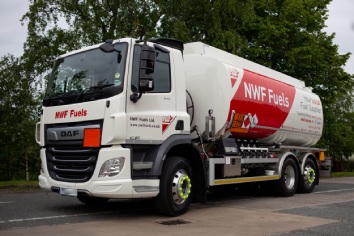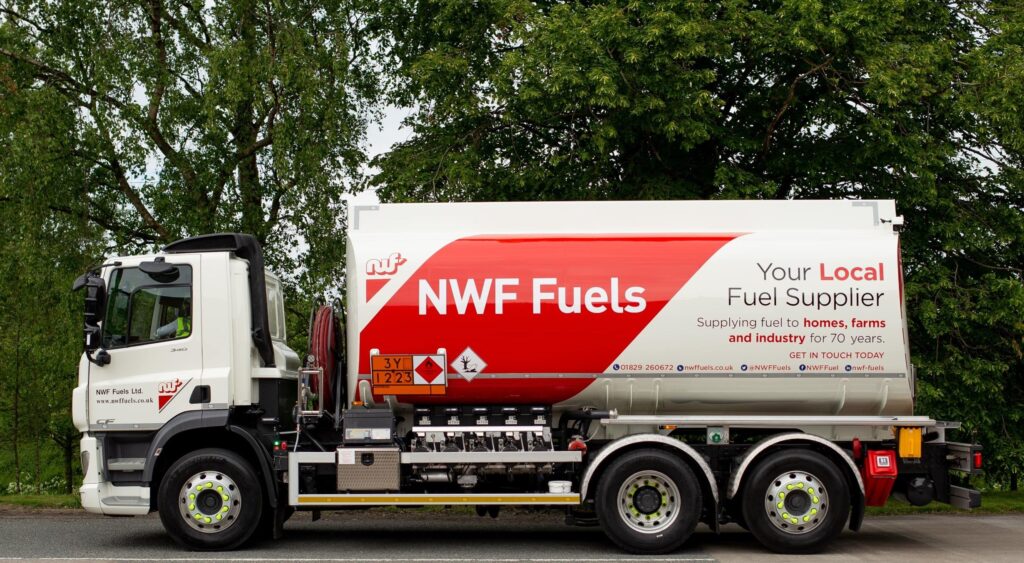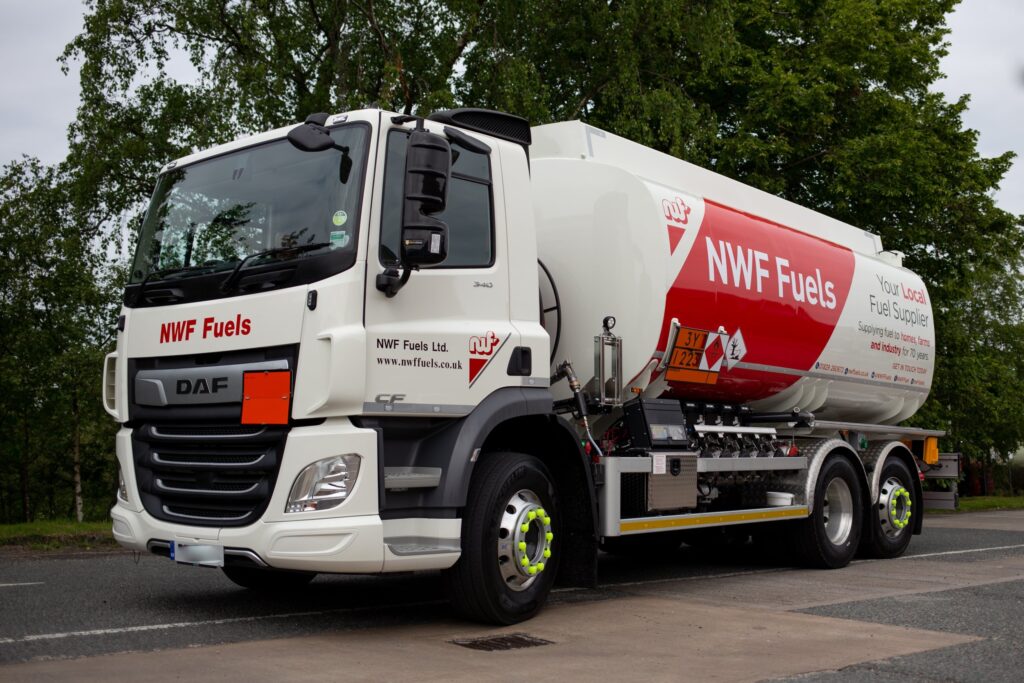In today’s world, fuel is a vital component in driving change and advancement across the globe. And that advancement is driving the development of more sustainable and environmentally friendly fuels.
It’s more important than ever before that we all play our part in helping to save the planet by cutting harmful emissions and seeking sustainable products. Businesses also have a legal responsibility to reduce their environmental impact and lower emissions in all areas of their day-to-day operations.
One of the best ways to improve your carbon footprint and lower your carbon emissions is to switch diesel for HVO fuel. If you’re considering making the switch, we have created a helpful guide outlining everything you need to know about this environmentally friendly fuel.
What is HVO fuel?
HVO fuel (Hydrotreated Vegetable Oil) is a fossil-free, paraffinic diesel that can be used as a replacement for red and white diesel. A renewable source of energy, HVO is made from used cooking oils, tall oil, non-food grade crops, and residue animal fats from the food processing industry.
Made from certified waste materials, the use of HVO helps reduce greenhouse gas emissions, while supporting the circular economy.
HVO has also been used as an alternative to Kero.
What is HVO made from?
HVO Fuel is synthesised from 100% renewable raw materials, such as animal oils and fats, and vegetable oils.
Reducing CO2 greenhouse emissions by as much as 90%, HVO fuels can be used as a direct, drop-in alternative to diesel, and they are able to be stored in the same fuel tank as red and white diesel, meaning you won’t have the added expense of swapping tanks.
Call us on 01829 260900 >>
What does HVO stand for?
HVO stands for hydrotreated vegetable oil. It is also known as renewable diesel.
What are the advantages of Hydrogenated Vegetable Oil (HVO)?
HVO fuel offers a number of benefits, including:
- Reduced CO2 emissions
- Fully sustainable
- Cleaner to consume, resulting in less carbon developing in boilers
- Only minor adjustments are required to your current heater
- Longer shelf life than other fuels.
Will I have to change my boiler for HVO?
HVO is a great substitution for diesel, as well as kerosene. Depending on the type of boiler you have, you may not need to make any changes at all to use HVO.
If you have a new modern boiler, for example, it’s highly likely that it will already be compatible with HVO fuels, meaning you won’t need to worry about making any changes. This may not be the case if you have an older boiler though, so make sure you keep this in mind.

If I start using HVO, will I need to drain my tank first?
No – because HVO meets EN15940 standards, you won’t need to drain your tank before you use it.
How long can HVO fuel be stored?
Providing it is stored in a well-maintained tank in good condition, HVO can be stored for up to 10 years, significantly longer than standard diesel, which can be stored for up to 1 year.
What does HVO fuel contain?
HVO fuels contain high cetane numbers and are part of the paraffinic diesel family. Containing synthetic oils with a low aromatic and naphthenic hydrocarbon content, HVO fuel has a high purity level as it does not contain sulphur.
How is HVO produced?
HVO fuels can be produced in lots of different ways. However, it is commonly produced through refining residue and waste materials in order to remove impurities and produce high-quality fuel that can be used across a broad range of applications.
What industries is HVO fuel used in?
HVO fuel is utilised across a wide range of industries as an alternative to diesel and, in recent years, there has been an increased demand for this type of fuel due to its many benefits.
Some of the most common industries it is used within include the following:
- Construction
- Rail
- Generators
- Agriculture
- Construction
- Marine
- Transport
What is HVO fuel used for?
HVO fuel is commonly used to power:
- Commercial boilers
- Industrial trucks and tankers
- Construction equipment and machinery
- Tractors and agricultural machinery
- Portable generators.
Get a Heating Oil Quote >>
Could my vehicle run on HVO fuel?
Yes, it could! HVO is similar to mineral diesel, meaning it can be used as a straightforward alternative in many cases.
HVO also meets the fuel specification EN15940, which means that it can be used in all applications that require fuel to that standard.
Today, HVO is increasingly being across a diverse range of commercial applications, including vehicles. In fact, many vehicles transporting goods and ingredients for large multinational fast-food chains are currently running on HVO.
Companies that have endorsed HVO for their vehicles include:
- DAF
- Renault
- Mercedes-Benz
- Iveco
- Peugeot
- Citroen
- Mercedes-Benz
- Volvo
- Caterpillar
It’s always wise to check with your engine manufacturer before swapping your fuel for HVO.
Is HVO the same as biodiesel?
Although both HVO and biodiesel are made from animal fats and vegetable oils, they are not the same as they are produced in different ways.
Also known as FAME, biodiesels are made by using oil that has been esterified with methanol, whereas HVO is processed using hydrotreatment, which gives it a longer shelf life.
How much does HVO fuel cost?
Based on cost-per-litre, HVO fuel is typically more expensive than regular diesel. However, it does offer a number of benefits, including allowing you to reduce your CO2 emissions by as much as 90%, without having to invest in changing any hardware.
What is FAME?
FAME diesel is a first-generation biofuel. It produces harmful emissions and significant amounts of NOx which are not good for either public health or the environment. This particular type of diesel is prone to cold weather issues and can develop water and biological attacks such as cold filter plugging much faster than other diesels.
What is paraffinic diesel?
A paraffinic diesel has zero sulphur content and low levels of naphthenic and aromatic hydrocarbons. These extremely pure fuels are high quality liquid fuels that are synthesised and clean. HVO is a recognised paraffinic diesel fuel.
Are paraffinic diesel fuels such as HVO fuel better than traditional fuels?
HVO fuel is significantly better for the environment compared to mineral diesel and is therefore key in helping the UK achieve its net-zero carbon target. Companies across all industries and sectors are now under huge pressure to meet the criteria for climate change and both the private and public sectors have identified fuel as a key area. The focus on renewal energy, green initiatives and sustainable operations with eco-friendly suppliers and products is going to continually grow and using HVO fuels will no doubt be a major factor in environmental impact for years to come.
Can HVO be used in boats?
HVO has a regulated manufacturing process with intensely controlled production processes which has seen the approval for boat use commissioned by marine experts such as VolvoPenta. HVO doesn’t have the traditional problems that sailors encounter with red and white diesel commonly used in boats and it will not lead to engine problems and contamination like fossil Diesel can. In wet environments, the presence of FAME can advance the corrosion of tanks, block filters, wear injectors down and even trigger engine failure. So HVO not bringing these flaws into operation is a huge advantage for sailors and marine manufacturers.
Can I mix HVO fuel and diesel?
You can mix HVO fuel and diesel but proceed with caution. You will receive more efficient performance and gain full benefits of HVO if you use it exclusively and this is usually the recommended method. Although mixing the two substances by adding HVO to your current diesel stocks will still see the engine run smoothly, due to the FAME content in the existing diesel, it could limit it’s extended shelf life.
What length of time can HVO fuel be stored for?
The fact that HVO can be stored for up to a decade in comparison to diesel having to have increased testing and only being able to be stored for a single year can be directly linked to the shift many organisations are making from traditional diesel to HVO. It is an attractive prospect because of the lack of impurities in HVO fuel which creates the longer shelf life of the product. The lack of FAME or sulphur in HVO significantly enhances its longevity.
Does HVO reduce emissions?
HVO is proven to lower three key components of emission pollution when used in vehicles. These are PM emissions (-84%), CO2 emissions (-90%) and NOx emissions (-27%) so HVO makes your equipment and engines much more efficient and eco-friendly. The extremely pure fuel is a result of a high-quality hydrotreatment process which sees HVO manufactured from vegetable oils amongst other renewable materials.
If you have any questions, please give us a call on 01829 260900 or email us.
For more information and to be kept updated with the latest developments in sustainable and environmentally friendly fuels. please click the button below.
REGISTER FOR UPDATES ON GREEN FUELS
Help save the environment with HVO Fuel
HVO Fuel is increasingly being used in the UK as a source of green energy. Here at NWF Fuel, we supply a comprehensive range of fuel, lubricants and AdBlue, plus everything else you might want for your fuelling needs.
We deliver throughout England and Wales to domestic, agricultural, commercial and retail customers. Get in touch today with a member of our expert team to discuss your fuel needs.




 White diesel is used in cars while red diesel is used for machinery and off-road purposes, such as domestic heating.
White diesel is used in cars while red diesel is used for machinery and off-road purposes, such as domestic heating.






